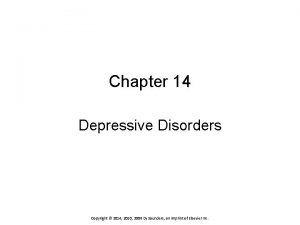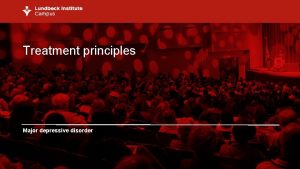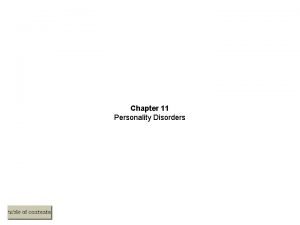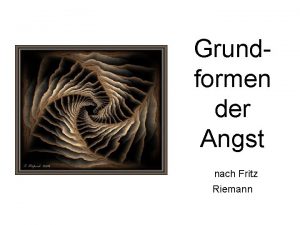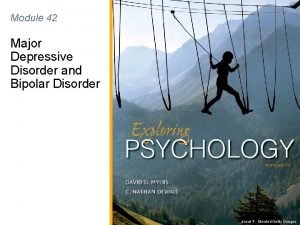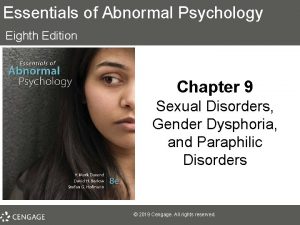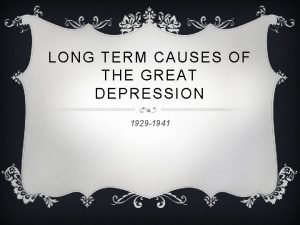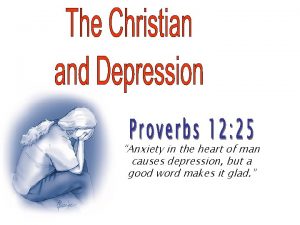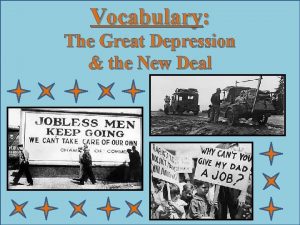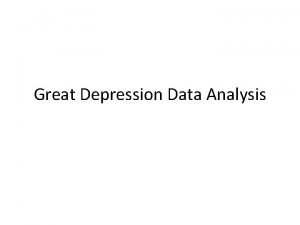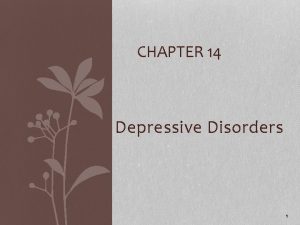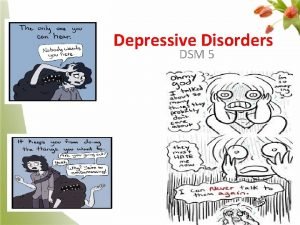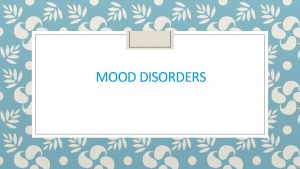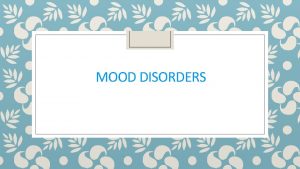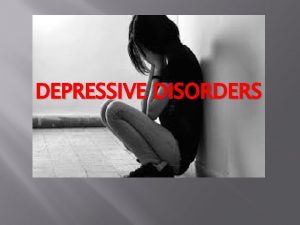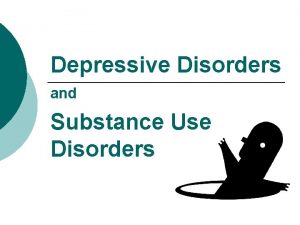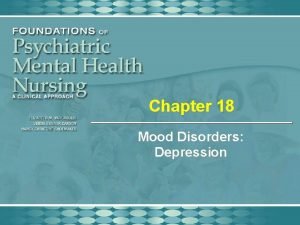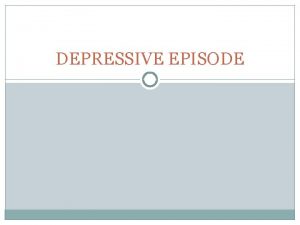Causes of Depression Causes of depressive disorders Depressive









- Slides: 9

Causes of Depression

Causes of depressive disorders • Depressive disorders results from a combination or interaction of genes, environment, individual life history, development, and neuro-biologic makeup. • Definitive causes have not yet been discovered.

Genetic causes • Family studies found increased risk for depression in clients with first-degree relatives (parents, siblings, children) who have had depression (Kelsoe, 2005). • Twin studies show that the concordance rate of depression in monozygotic (identical) twins is 45% to 60%, whereas the concordance rate in dizygotic (non-identical) twins is 12% (Kelsoe, 2005). • The difference in concordance rates supports that genetic factors contribute in some way to the development of depression in certain clients • Adoption studies: children of parents with depression are at an increased risk of developing a mood disorder even when adopted & raised by healthy parents

Biogenic Amines • It has been hypothesized that depressive illness may be related to a deficiency of the neurotransmitters norepinepherine, serotonin, and dopamine at functionally important receptor sites in the brain.

BIOGENIC AMINES • The monoamines that have been implicated in depression are norepinephrine (NE), dopamine (DA), and serotonin (5 -HT). • Disturbances in mood may result when absolute concentrations of NE, 5 -HT, or both are deficient. • Altered numbers, affinities, or both of 5 -HT and NE receptors and uptake sites may affect metabolism.


Functions of brain parts implicated in depression • Hippocampus: memory impairment, feelings of worthlessness, hopelessness & guilt • Amygdala: Amygdala Anhedonia, anxiety, reduced motivation • Hypothalamus: increased or decreased sleep & appetite, decreased energy & libido • Other Limbic structures: structures emotional alteration • Frontal Cortex: Cortex depressed mood, problems concentration • Cerebellum: Psychomotor retardation / agitation


 Chapter 14 depressive disorders
Chapter 14 depressive disorders Major depressive disorder
Major depressive disorder What is sadistic personality disorder
What is sadistic personality disorder Grundformen der angst riemann
Grundformen der angst riemann Major depressive disorder
Major depressive disorder Causes of paraphilic disorders
Causes of paraphilic disorders What were the long term causes of the great depression
What were the long term causes of the great depression Anxiety in the heart of man causes depression
Anxiety in the heart of man causes depression Great depression vocabulary jeopardy
Great depression vocabulary jeopardy Great depression causes
Great depression causes
